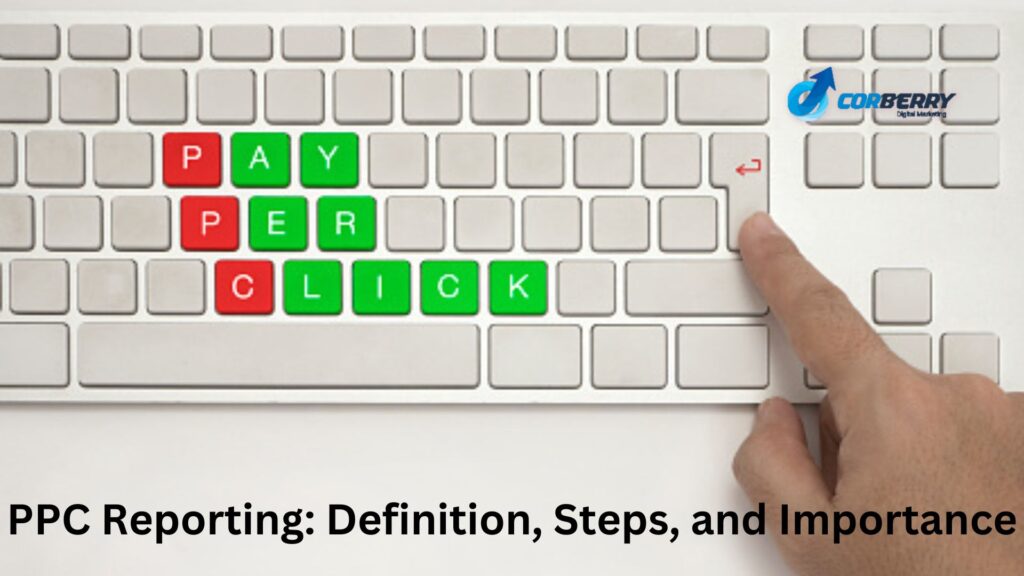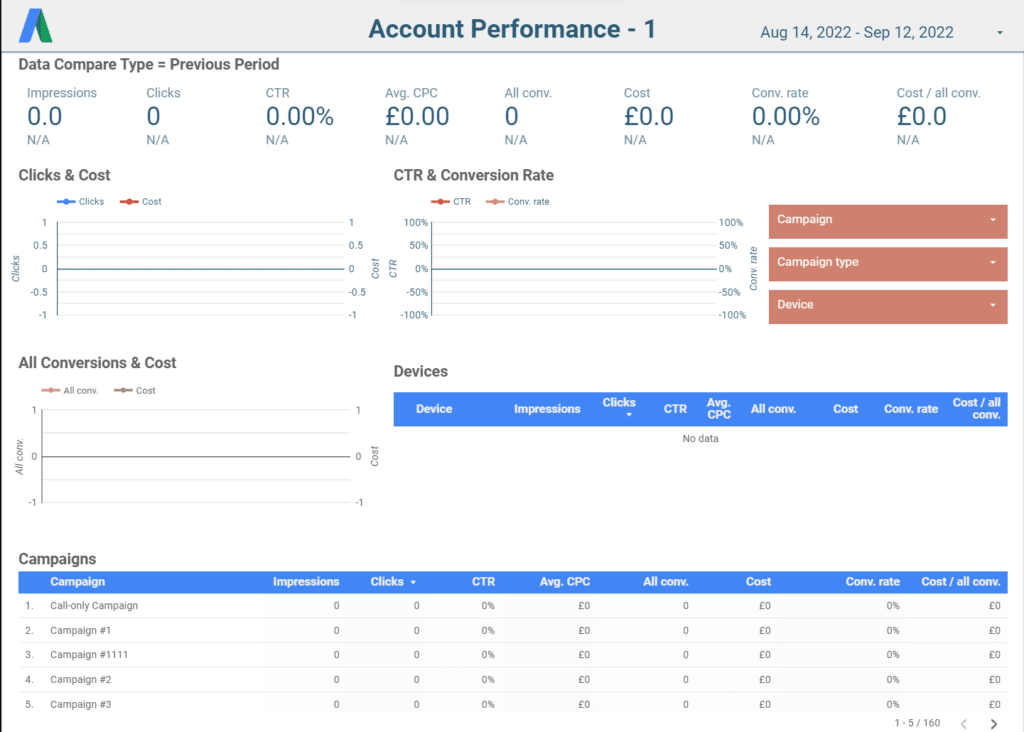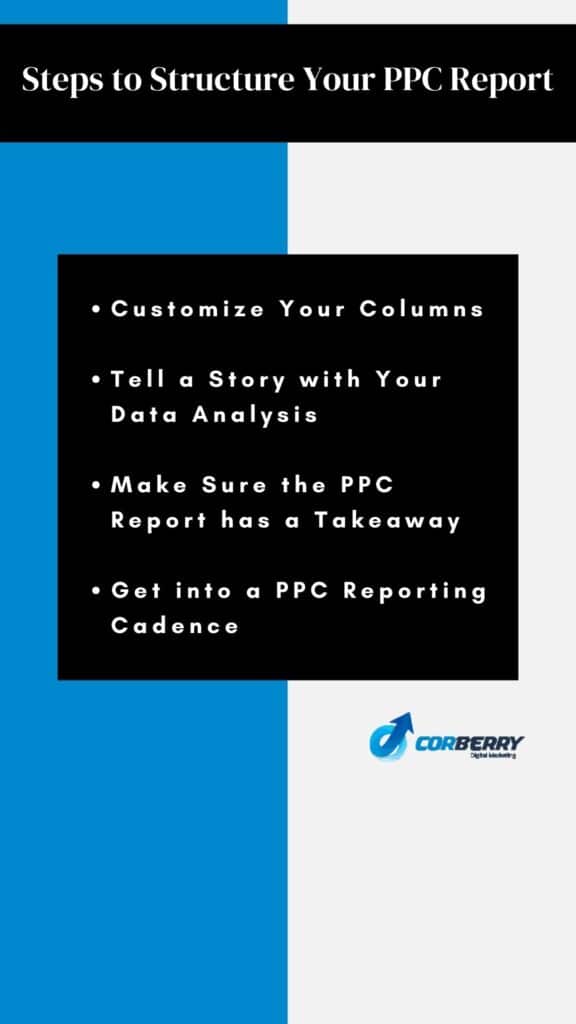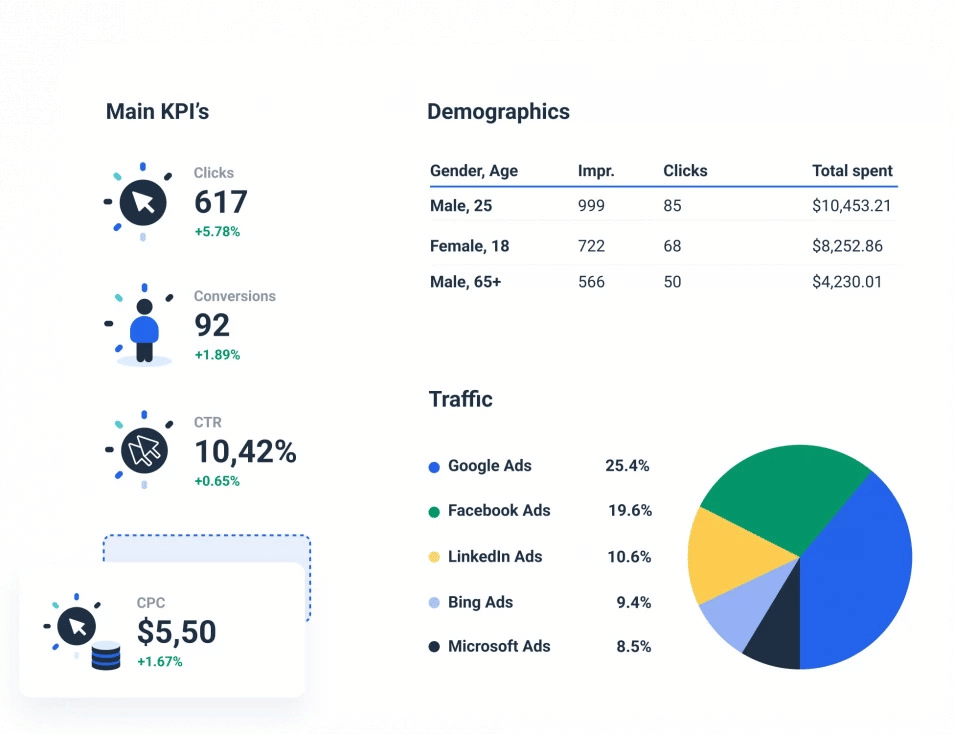
PPC reporting is a critical part of any marketing campaign. It’s the data that tells you where your ads are performing, what keywords are working best for you, and how many people are clicking on them. PPC reports also help you assess how much time is spent on each ad, and whether or not it’s worth continuing to spend money on it.
Definition: What Is a PPC Report?
PPC reporting is a way to measure the performance of your PPC campaigns. It’s a snapshot of how well your campaigns are performing and can help you identify areas for improvement, which will ultimately lead to better results in the future.
For example, if you notice that one ad performs better than others, it might be time to reassess what ads work best for that particular audience. Or perhaps there’s something wrong with how those ads are being displayed. Like ads sending users directly into paid search results instead of landing pages?
Either way, PPC reports can help guide decisions about future strategies because they provide insight into how effective each campaign is at driving conversions (and, therefore, revenue).
Why Is Reporting Important for PPC Success?
Reporting is essential for PPC success because it helps you understand your data, and enables you to decide what to do next.
For example, if a campaign has been running for months and hasn’t scored well on any of the metrics that matter most, like cost per click or conversion rates, it might be time for a change.
In contrast, if one campaign got off to a great start, but didn’t live up to expectations, like a low CTR or low conversion rate, there could be something wrong with that particular ad copy or landing page.
Also Read: How to Improve Your Ranking and Get Your Website to the Top of Google
Important Metrics to Measure in Your PPC Campaigns
A good PPC report should contain enough data to speak for itself. The following are the key metrics to measure in your PPC campaigns, and it is mandatory that you add them to your PPC report:
- Clicks.
- Click Through Rate (CTR).
- Average Position.
- Average Cost Per Click.
- Cost.
- Conversion.
- Conversion Rate.
- Cost Per Conversion (CPC).
You can get all this data from your Google Adword manager. Though having the information is not enough. Preparing a PPC report that would help your peers and anyone involved in the campaign is an efficient step to take.
Also read: How to Set Up and Track PPC KPIs?
Steps to Structure Your PPC Report
Step 1: Create a column for your ad campaign and make sure you have the following information in it:
- Ad Campaign Name.
- Total Cost Per Click (CPC).
- Daily Average Cost Per Click (DACPC).
- Estimated Monthly Value (EMV).
Step 2: Add up all of your monthly expenses and divide them by 30. This will give you a rough estimate of how much money each day you have paid so far this month. You can also estimate how much money was spent on ads per day using this formula: ([Budget] / [30]) * 100%.
Here’s an example of how essential PPC reporting tools show the results.

Also Read: The Complete Guide for a Successful PPC Bid Strategy

Customize Your Columns
Customizing your columns is important because it allows you to customize the data that’s displayed in each column. In addition, it can help you organize your data so it’s easy for the users of your website or app to find what they need.
You can customize any number of things while preparing your PPC report. Here’s an example that might help you understand:
Headers: You can change the color of each heading and add text to them. You’ll want to choose colors that are easy on the eyes and won’t distract from what’s going on behind them (like text) by making them too bright or dark; also, consider adding any other information about what each header means in terms of content hierarchy within an ad group structure.
Tell a Story with Your Data Analysis
When it comes to PPC reporting, you want to ensure that your data tell a story. Imagine preparing a PPC report with only the numbers of your clicks, conversions, or click-through rates.
How would you expect anyone to understand what it’s about? What are you trying to convey with your numbers? What is the most important part of the report? How can you use it to inform strategy?
In order to make it easy for PPC marketers to understand what’s going on with your PPC campaign, try adding a single sentence below your chart. This would make a lot more sense than just adding numbers.
Make Sure the PPC Report has a Takeaway
The first step to creating a PPC report is to make sure it has a takeaway. This means that you need to make sure that your audience can easily understand what they’re reading and how they can use the information in their business, no matter what kind of industry or position you may be in.
You have to think about how easy it would be for someone who doesn’t have any previous experience with PPC advertising or analytics tools, like Google Analytics (GA). This means writing down key takeaways at the end of each section, so readers know exactly what they’ve learned and where they should go next. Whether it’s actionable steps, like scheduling ads or making changes within GA itself or simply giving them an understanding of why everything matters so much right now (ease-of-use).

Get into a PPC Reporting Cadence
Consistency is the key to your PPC reporting. The following are a few ways to be consistent with your PPC reporting:
- Define a schedule for reporting.
- Make sure you report regularly and have a good reason for each report.
- Understand the business impact of each report.
- Have a good way to distribute your reports (email, etc.).
Good PPC reporting is all about telling a story that informs and guides your strategy, so make sure you’re asking yourself the right questions as you craft your reports. Here are some key questions to ask:
- What are your goals for the campaign?
- How do you measure success?
- What data points should you look at when evaluating performance?
- What KPIs do they help us focus on most effectively (vs. just overall traffic or visits)?
- How can we use this information to improve our campaigns in the future (e.g., by changing keywords or ad copy)?
Also Read: How Effective Is Pay-for-Performance SEO?
Conclusion
The PPC reporting process is a great opportunity to put data into action. As we’ve discussed, the reports you create can be used to strategize your campaign and make informed decisions when executing your ad spend. We hope this guide has helped you understand how PPC reporting works, and what type of information should go into your next one.
Frequently Asked Questions
What makes a good PPC marketing report?
The PPC report you create for your business must contain the following to make it more effective:
- Ensure it tells a story.
- Connect the dots between PPC metrics in a clear way.
- Clearly state action for the future (both short- and long-term goals).
What are the types of Pay Per Click advertising?
The common types of PPC advertising are:
- Paid search advertising.
- Display advertising.
- Social media advertising.
- Retargeting PPC advertising.
- Affiliate marketing.
Is PPC paid search?
Yes, it is. But the best part of PPC advertising is you pay for the click on your ads. PPC advertising is now termed Paid search after years in practice.


